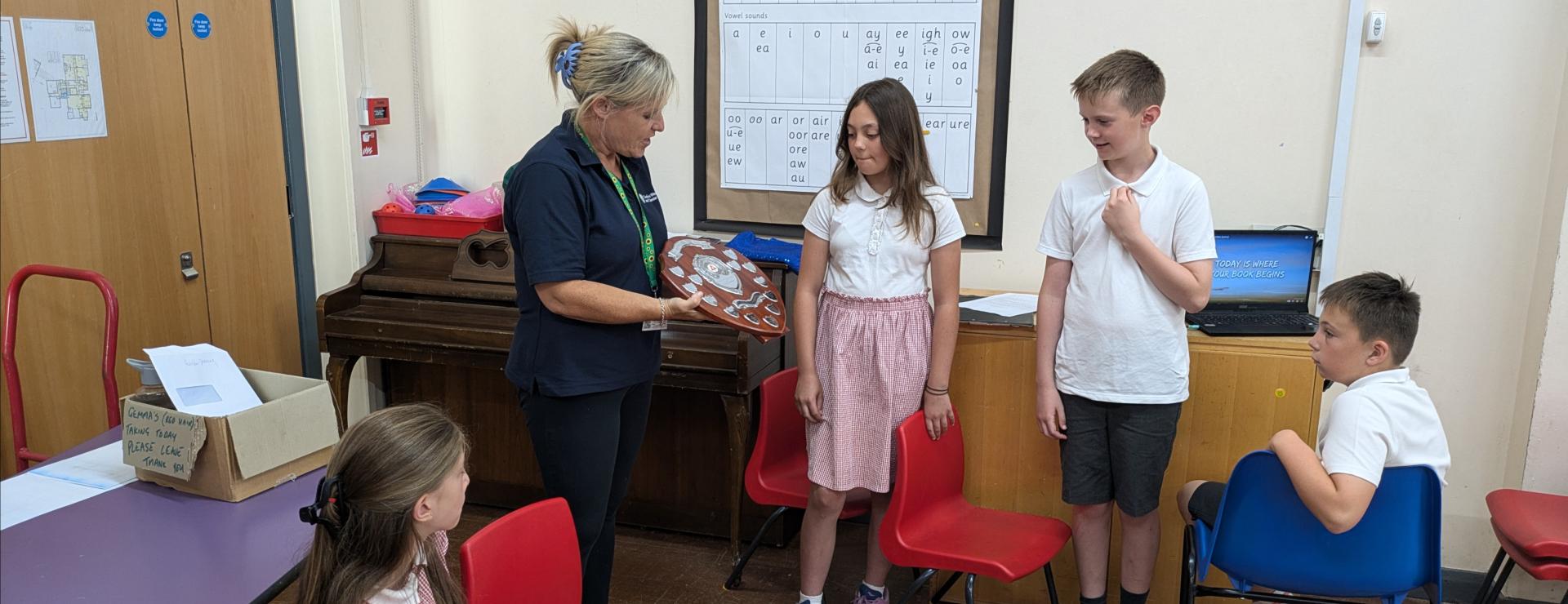Safety Officers
Junior Safety Officers
Hello and welcome to our Junior Safety Officers webpage. A huge well done to Jospeh and Robin from Year 6 last year. They won the Local Authority award for the best Safety Officers in the whole of Cheshire West!
A tough act to follow, but we are sure our new Safety Officers are up to the task! For 2025 - 26 our Safety Officers are Issac Kirk and Eloise McGrath.
These pages will evolve throughout the year and will include messages about personal safety and keeping safe when you are out and about during the year.
We will discuss safety gear; helmets and seatbelts and why they are important. We will talk to you all about community safety, looking after the environment, keeping your property safe and being a Good Citizen.

